New Ambassadors Will Seriously Contribute to the Development of Multifaceted Relations with Tajikistan By Their Fruitful Diplomatic Activities
Read also
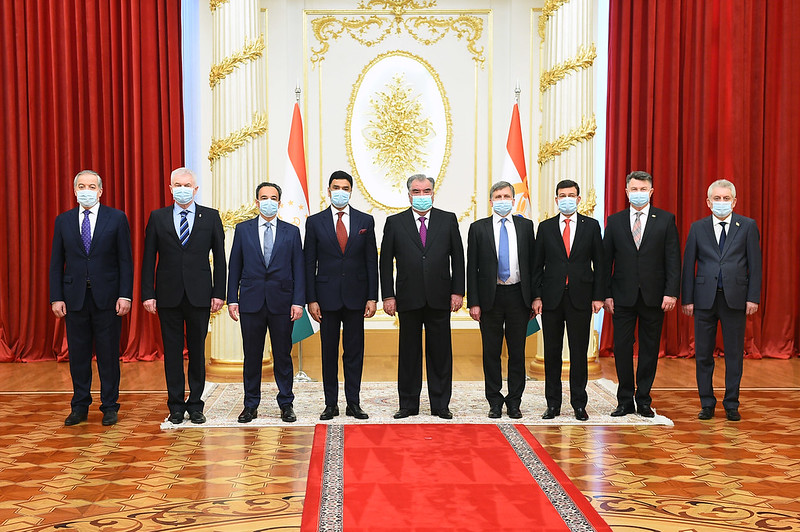
DUSHANBE, 18.02.2021 (NIAT Khovar) – Today, at the Palace of the Nation, President Emomali Rahmon received the credentials of the new ambassadors of Afghanistan, France, Palestine, Italy, Hungary and Croatia.
Following the presenting ceremony, they exchanged their views on issues of bilateral relations, as well as international and regional issues.
“Afghanistan, with more than 1,300 kilometer border is adjacent to the state. Tajikistan maintains relations with Afghanistan from the time of Great Ariana, and ancient Khorasan. Of the five pillars of the foreign policy of Afghanistan and Tajikistan, the Tajik state is on three pillars — Islamic countries, Asia and the neighborhood. Tajikistan, which was 20 years ago, is strikingly different from today’s Tajikistan. I would like to open a new page during my tenure as the new ambassador,” noted Afghan Ambassador Zahir Aghbar.
“France was one of the first countries to recognize the independence of Tajikistan. Today, relations between France and Tajikistan are at the proper level. I hope that during my tenure as ambassador, I will bring relations between France and Tajikistan to a qualitatively new level. As you know, an exhibition of historical paintings by the Tajik people will be held in October 2021 for the first time in the Guimet Museum. Work continues in this direction with the relevant departments of the two countries,” said the French Ambassador Michel Tarran.
Loai Issa, the Ambassador of Palestine commented on the relations between Palestine and Tajikistan and noted that President Rahmon fully supports the settlement of the Palestinian issue on the basis of international treaties and documents. He expressed hope for further development of relations between Tajikistan and Palestine.
“The Embassy of Palestine in Tajikistan will strive to strengthen development and expand relations on the basis of agreements and memorandums of understanding. At present, eight documents have been signed, and the parties are considering five draft documents on cooperation in various fields,” Issa said.
The Ambassador of Hungary Mihaly Galosfai noted the good relations between Tajikistan and Hungary.
“Hungarian-Tajik political relations are based on friendship and mutual understanding. Since gaining independence, bilateral relations have also developed. In this context, there are enormous prerequisites and opportunities in our bilateral relations that we must use in the interests of both countries. Along with the development of political, economic, energy cooperation, as well as in the field of water, it is necessary to strengthen cultural and humanitarian cooperation. We are ready to cooperate in the field of sports,” he stressed.
According to the Ambassador of Italy Agostino Pinna, Italy and Tajikistan in recent years have established bilateral cooperation at the required level.
“The Italian side invited President Rahmon to Italy. This trip will take place as the situation stabilizes with the spread of COVID-19. Italy is interested in this trip and in the development of comprehensive relations with Tajikistan in the field of economy and energy. Today Italy is making its contribution to one of the important life projects of Tajikistan — the construction of the Rogun hydroelectric power station, and I intend to get acquainted with the progress of its construction”, he added.
Refik Sabanovic, the Ambassador of Croatia said that President Rahmon spoke about the broad opportunities and potential of cooperation between Tajikistan and Croatia in the spheres of economy, politics, investment and culture.
«Ivica Piric the Honorary Consul of Croatia in Tajikistan accompanies me on this trip to Tajikistan. We hope that over the next five days we will be able to hold fruitful meetings and negotiations with the relevant Tajik authorities,” he added.
During the conversation, President Rahmon expressed his opinion on the current situation in the world, and noted that against the background of the negative impact of COVID-19, the world community is currently faced with unprecedented threats. In such a difficult situation, solidarity and support for each other, effective international cooperation, are key factors in the fight against today’s challenges.











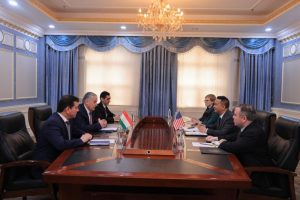 FM Muhriddin meets with U.S Ambassador due to completion of his mission in Tajikistan
FM Muhriddin meets with U.S Ambassador due to completion of his mission in Tajikistan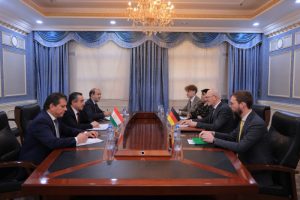 Tajikistan and Germany discuss bilateral cooperation
Tajikistan and Germany discuss bilateral cooperation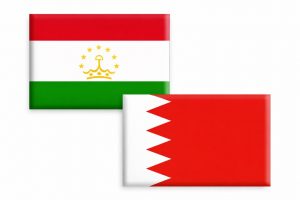 Joint Statement by the Ministries of Foreign Affairs of the Republic of Tajikistan and the Kingdom of Bahrain on the Occasion of the 30th Anniversary of the Establishment of Diplomatic Relations
Joint Statement by the Ministries of Foreign Affairs of the Republic of Tajikistan and the Kingdom of Bahrain on the Occasion of the 30th Anniversary of the Establishment of Diplomatic Relations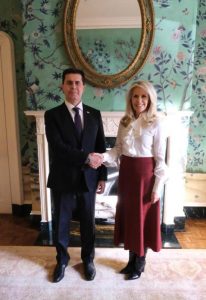 New Ambassador of Tajikistan presents copies of his credentials to the head of protocol of the US State Department
New Ambassador of Tajikistan presents copies of his credentials to the head of protocol of the US State Department UN General Assembly adopts Tajikistan’s resolution on International Year of Legal Literacy, 2027
UN General Assembly adopts Tajikistan’s resolution on International Year of Legal Literacy, 2027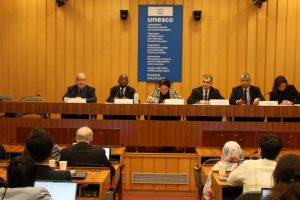 Dushanbe to host International Conference on Water for Sustainable Development in 2026
Dushanbe to host International Conference on Water for Sustainable Development in 2026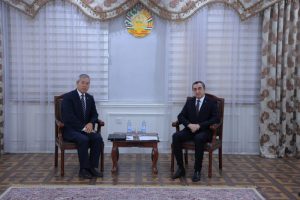 Tajikistan, China discuss future cooperation prospects
Tajikistan, China discuss future cooperation prospects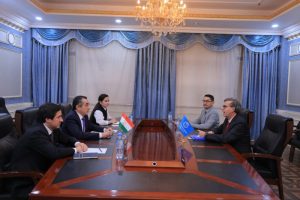 Tajikistan, WB discuss cooperation in energy sector
Tajikistan, WB discuss cooperation in energy sector Central Asian Foreign Ministers and Nordic discuss current state and prospects of cooperation agenda
Central Asian Foreign Ministers and Nordic discuss current state and prospects of cooperation agenda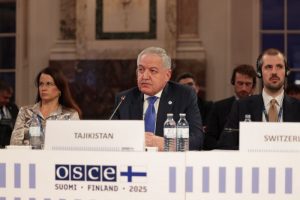 Tajik FM addresses OSCE Ministerial Council, calling for expanded cooperation in major challenges
Tajik FM addresses OSCE Ministerial Council, calling for expanded cooperation in major challenges Tajikistan and Hungary to strengthen educational connections and programming
Tajikistan and Hungary to strengthen educational connections and programming Tajikistan, Iran reaffirm commitment to strengthen bilateral friendly relations
Tajikistan, Iran reaffirm commitment to strengthen bilateral friendly relations














